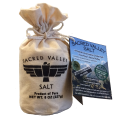Sacred Valley Trading Co. takes a radical approach to doing business in a developing country...
Humans come first.
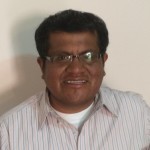

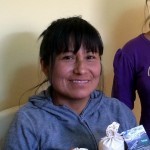
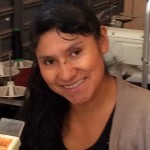
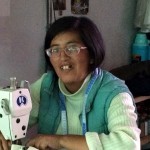
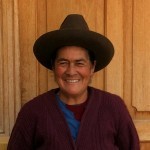
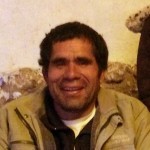
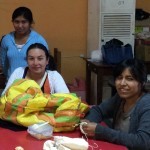
This is not "business as usual."
When foreign companies start operating in a developing country, it usually goes something like this: They build a factory, hire some local people to work under the oversight of their own imported management, and start extracting a valuable resource from the developing country. The local economy enjoys a temporary upswing, as locals receive employment, and this money circulates through the local economy.
The problem is, there’s no lasting benefit. Once the resource is used up, or the market for the resource in affluent lands dries up, the foreign company pulls out.
The local people are now actually worse off than when the foreign company first arrived. The jobs are gone, and the valuable local resource is now gone as well. The prime members of their workforce have invested years in learning skills that suddenly aren’t needed. Local small businesses that sprouted up when the factory came to town wither and die even more quickly. (Within the US, you can see how something similar has happened in the "Rust Belt.")
Scroll down to briefly meet some of the Sacred Valley locals involved in bringing Sacred Valley Salt to you. In so doing, they are investing in themselves and in their own communities.
Juan César - Ayní Products
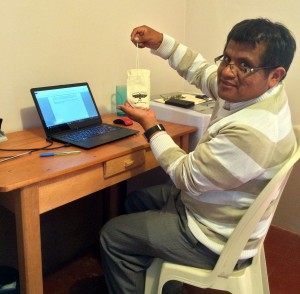
Juan César is the owner of Ayní Products. Since 2001, he's been running a business started by his father over 40 years ago, employing local craftspersons who make pottery and jewelry for the tourism market. In recent years, many of his clients have switched from his hand-made artisanal pottery and jewelry to cheaper Chinese factory-made replicas.
He is excited to partner with Sacred Valley Salt Co. because as he put it, "Sacred Valley Salt is a product that cannot be outsourced." We're excited to work with him as someone who agrees with and is willing to uphold our principle of "100% responsible." He thus gives hiring priority to single mothers and people with disabilities or disadvantages.
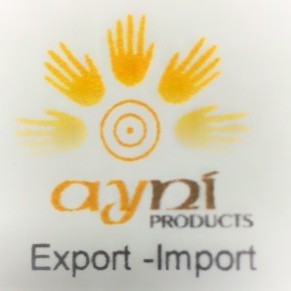
Leonardo

Leonardo was born in a rural area of the Pisac region at the upper end of the Sacred Valley. His parents were too poor to care for him, so they sent him to live with relatives in the Urubamba area. He spent the majority of his childhood herding sheep in the mountains surrounding the Sacred Valley rather than going so school. Thus, he struggles with Spanish. (Quechua is his mother tongue.) He also inherited a genetic type of osteoporosis which doesn't allow him to perform heavy physical labor. It's hard enough to find work in Peru without these disadvantages. He was employed most recently caring for a hotel at night - 9 hours per shift, 7 days per week. He received food and a place to sleep, but no money whatsoever. He now earns a good wage with flexible hours weighing out and packaging Sacred Valley Salt.
Nilda
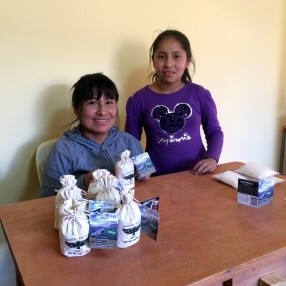
Shown here with her daughter Fiorela, Nilda is a single mother raising 3 children, one of whom is disabled. She scrimped and saved for years in order to obtain a small piece of land to call her own. Due to community regulations for the zone where her plot is located, she has to go there in person each day to sign a registry, or else she will lose the land. This eventually resulted in her losing the job she'd had for several years. Packaging Sacred Valley Salt, she earns significantly more than she did at her last job while working only 2/3 as many hours. She now has time to take care of her children and attend to her piece of land.
Elsa
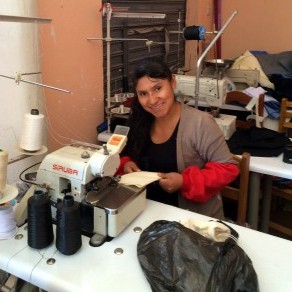
Elsa's husband abandoned her and their two daughters about 5 years ago. To provide for herself and her daughters, she took out a sizeable loan to start her own small sewing shop. Orders for Sacred Valley Salt pouches have been a welcome boost for her business. She has 2 years remaining on her loan, and once it's paid off, she plans to begin saving so that her daughters can attend a university when they get older.
Señora Luzmarina
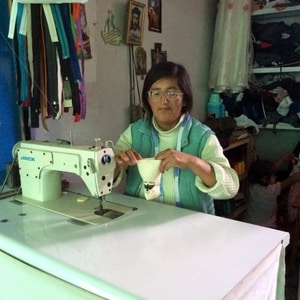
She is married with three children and has her own small tailor shop. She and her husband recently took out a loan to buy carpentry machinery for him and a new sewing machine for her. Contracts to make pouches for Sacred Valley Salt has been the type of steady income they have been needing to feel secure enough to take out such a loan. As of June of 2016 they only have 4 more months to pay on the loan. They hope that after paying off their loan, they will eventually be able to save up enough to buy a small piece of land where they can build their own house.
Señora Vilma
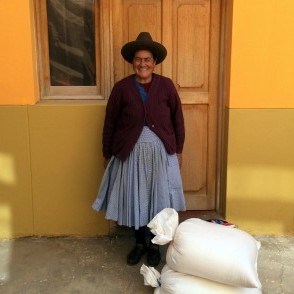
Señora Vilma is a native Quechua speaker; her Spanish is very limited. For nearly her whole life, her primary source of income has been selling salt in the local market. Her family also has some land that they farm, but this alone isn't enough. Selling salt from the family's ten salt ponds in Salineras de Maras is the additional income supplement they need. Although for countless generations, the Sacred Valley inhabitants have used salt from the nearby salt ponds, recently an outside company called Salisal has started trucking in cheap, iodized, anti-caking-agent-rich (up to 1%) refined salt. This company has also been behind rumors (an effective marketing technique in the area) that non-iodized salt from the Sacred Valley is poisonous and causes birth defects. Local demand for locally produced salt has thus fallen, and at times Señora Vilma spends the whole day in the market only to sell a kilo or two of salt. She has been thrilled to receive orders for Sacred Valley Salt 100 kg at a time.
Raul
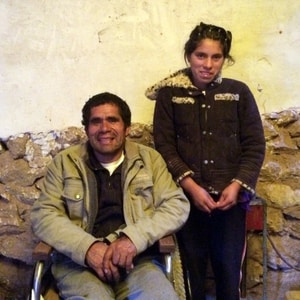
Shown here with his daughter, Roseni, Raul was born in the tiny village of Pichingoto, about 3/4 mile from the salt pools. His family owns six of the pools at Salineras de Maras. His mother has worked her entire life carrying the salt up to isolated villages by donkey and selling it to the rural inhabitants. As a young man, Raul moved to Puerto Maldonado, a town in the Amazon, and made good money with logging and mining operations until he was robbed taking his pay to the bank. He was shot during the robbery, leaving him paralyzed from the waist down and in constant pain. After this, to make a living, he took a gamble, selling his entire family farm to buy a small dump truck, which he hires out along with a driver that he employs. In addition to now having a steady buyer for his family's salt, his dump truck is hired to move salt from the Salineras de Maras to Cusco, the first leg of transport to the rest of the world.
CET-PRO
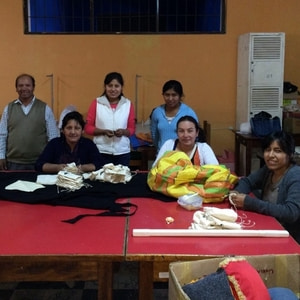
This is a trade school dedicated to helping rural Peruvians to escape poverty by training them in basic useful skills such as carpentry, sewing, and ceramics. They are known for holding classes at flexible hours to allow students to work during the day and study at night or on weekends. They are also known for having very reasonable pricing for their courses and fast turnaround for students pursuing certifications in their respective fields. Making pouches for Sacred Valley Salt, many students are able to put their newfound skills to work for the first time and start making a living wage even before receiving their certification. Much of the funding for the school itself comes from projects that the students perform, such as making pouches for Sacred Valley Salt. This, in turn, allows the school to keep tuition affordable for the students.
